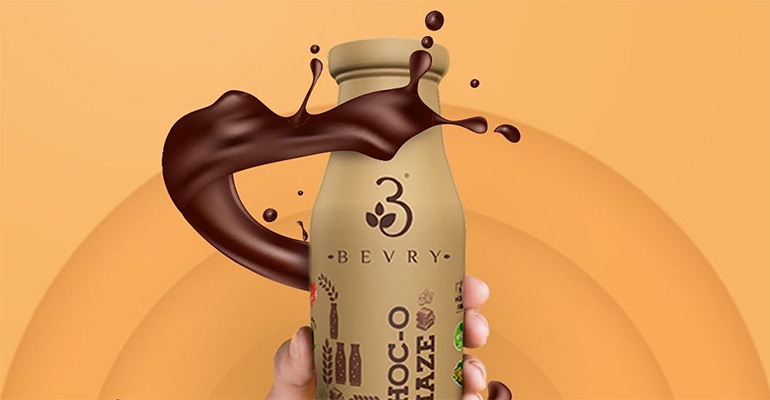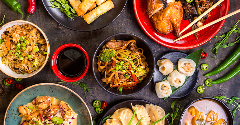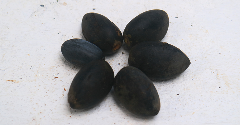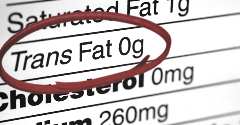Oat milk start-up Bevry on India’s plant-based potential
12 Jul 2021In this article Pradeep Sanker, co-founder of oat milk start-up Bevry, known as ‘the Oatly of India’ talks about challenges and opportunities in India’s plant-based dairy market.
Bevry was founded by three friends who met while studying in Sydney, Australia.

“We came across Oatly in Sydney in 2019 and were quite interested in the whole concept of this product,” said Pradeep Sanker. “We did some basic market research on India and how the milk alternative industry was growing there, and we noticed multiple companies were into almond, soy, rice, and hazelnut [for] plant-based milks but no-one was doing oat milk.”
Although oat milk giant Oatly recently entered the Indian market, the beverage is relatively unknown in the country. However, it is a rapidly expanding category, said Sanker, and Bevry is keen to position itself as the ‘Oatly of India’.
"They [Oatly] are not huge in the India market, they are in Starbucks and a handful of other stores but (…) they are focussing on other countries right now. They have small footprint in India so before they get into the market we want to establish ourselves in the oat milk space.”
Bevry’s ready-to-drink (RTD) beverages are available in 200 ml bottles and come in three flavours: vanilla & cinnamon; chocolate & hazelnut; and cold-brew coffee. It sells its products via its own website and has listings with Whole Foods. It also recently inked a deal with premium brick-and-mortar retailer Nature’s Basket and online platform Big Basket.
Finding the right formulation
Getting the right formulation for the oat milk was the first and biggest challenge the entrepreneurs faced when they began setting up the business in India.
“We couldn’t find the right lab or food technologists to work with that were well versed in making oat milk. That was a big hurdle so we ourselves got into this R&D and worked a lot on it ourselves. We finally found someone to work with but still had to put in a lot of effort trying to understand the science behind oat milk ourselves. It’s much more complicated compared to almond or soy, especially when it comes to achieving stability, texture and protein levels.”
The ubiquity of dairy in the typical Indian diet also meant it was important to create a product as dairy-like as possible.
“India is one of biggest production houses for dairy milk so people compare all the plant-based alternatives to regular milk in terms of texture and the mouthfeel.
“We spent lot of time on R&D when we created our product and we definitely had this as a priority; all our products are catered according to the Indian palate. [Our plant-based milk] is a bit heavier in texture, Indian people like the products to be thicker [whereas] Europeans prefer products to be lighter.”
Sugar, an acceptable sweetener in India
Bevry sweetens its products with organic brown sugar, which it chose “mostly because of availability and definitely because of the taste”, Sanker told The Ingredients Network.
“We compared our product with different sweeteners and we thought brown sugar tasted the best and is easily available as well. Sugar is something that people are looking at but if it’s in limited quantities, they appreciate the product and will consume it anyway,”
The flavoured milks contain around 4.31 g sugar per 100 ml, 2.1 g protein, 1.58 g fat per 100 ml of product.
According to Bevry, its oat milk contains less sugar than its main competitor brands and it is considering launching a low-sugar version sweetened with a natural sweetener such as stevia.
Its main target consumers are educated, urban people who enjoy trying new foods and most of its sales are concentrated in India’s biggest cities - Mumbai, Delhi, Chennai, Hyderabad, and Bangalore – where people are now used to seeing dairy alternatives offered in cafes and restaurants.
“We actually price our products compared to other [plant-based] companies in market, […] around 100 rupees for a 200 ml beverage. It’s an affordable price, people accept it and are very much willing to pay for it.”
Ambient storage ensures nation-wide distribution
The drinks can be stored at ambient temperature and have a shelf-life of nine months, thanks to its retort packaging process, which kills bacteria through high temperatures.
“[This was] definitely important for the Indian market because cold chain storage and transportation here is very expensive and even in grocery stores, most of the time we have to pay extra for keeping products in the refrigerated section. It’s all an added expense so it was a priority for us to store it at room temperature.”
In the short and medium-term, it will be working to make up the shortfalls brought about by coronavirus lockdowns, which greatly hindered its sales.
“We had a huge downfall because of the second wave of COVID in India. We had to shut down for a few months and are currently getting the company back on track. So, we are now looking at volumes around 10 to 20,000 bottles per month to start with. The lockdown is still is not over so most of the cities we work with still have lockdown and even the grocery stores are restricted to 3 to 4 hours a day of working hours a day. These are all huge downsides for selling consumer products but we are slowly getting back on track.”
Sourcing
Oats are a relatively new ingredient in India – Bevry’s website describes the flavour as ‘an exotic combination of taste and health’ – and sourcing sufficient volumes locally or even domestically is impossible. It imports whole, unrefined oats from Australia via a third party and processes them in India.
“It is paradoxical [from a sustainability perspective] but we don’t have any other options for us. The person we source oats from imports them in very large quantities and we buy a small part of that from them. There are oats in India but only a very small number of farmers do oats cos they prefer to grow wheat or rice in their field. The market for oats is still growing here,” Sanker said.
Related news

Chinese food brand wants to give customers ‘the full experience’
16 Dec 2022
Food brand Xiao Chi Jie is revamping Chinese cuisine for the modern American consumer. The Washington-based company sells regional Chinese specialties like soup dumplings, noodle kits, and barbeque skewers direct-to-consumer in the US.
Read more
Regulations spur healthy snacking in Europe
15 Dec 2022
Healthy snack demand is on an upward trajectory in Europe, fuelled by products attaching health halos to their products, according to latest figures by Euromonitor – but regulations may be the real driver.
Read more
Could the EU-Mercosur trade deal be revived?
14 Dec 2022
The re-election of Luiz Inácio da Silva, or Lula, as president of Brazil has prompted speculation that the free-trade agreement between the EU and South American Mercosur bloc could be revived – but the European farming sector has concerns.
Read more
Could menopause-supporting products be the next big opportunity?
13 Dec 2022
As supplement brands launch products to relieve the symptoms of menopausal women such as nutraceutical gummies, the unmet needs of this group is attracting government attention in the UK.
Read more
Plant-based fish and seafood launches around the world
12 Dec 2022
From pea protein-based prawns to microalgae-based tuna alternatives, plant-based alternatives to fish and seafood are on the rise around the world.
Read more
Editors’ choice: Our roundup of the most innovative sweets, snacks and bakery products
9 Dec 2022
The sweets, snacks, and bakery categories are an exciting area, full of fresh and innovative products which are constantly adding meaningful value to the sector.
Read more
Functional food in Japan centres on health and proving claims
8 Dec 2022
The latest Japanese functional food and drink trends put health and product efficacy firmly on the production agenda for new releases.
Read more
Swedish food agency: One in 10 coffee brands contain excess acrylamide
7 Dec 2022
New findings from the Swedish Food Agency have revealed three of 29 coffee products sampled contained acrylamide above limits, reinforcing the link between levels and degree of roasting.
Read more
‘Super nut’? Indonesia’s ‘best kept secret’ wins EU novel food approval
6 Dec 2022
A previously obscure, nutrient-rich Indonesian nut is set to hit European shelves after winning EU novel foods approval that could also help protect under-threat kenari forests on the archipelago.
Read more
Philippines to restrict trans fats in processed foods
5 Dec 2022
Use of artificial trans fats in pre-packed processed foods will be restricted in the Philippines as the country looks to eliminate its consumption from other sources too.
Read more